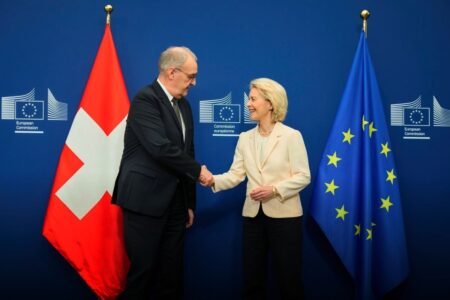— last modified 12 June 2018
The Transnational Alliance to Combat Illicit Trade (TRACIT) and The Economist Intelligence Unit (EIU) released on 7 June the Global Illicit Trade Environment Index (the Index), ranking 84 countries on the extent they enable or prevent illicit trade.
“The Index provides essential information to help policy makers better understand the regulatory environment and economic circumstances than encourage illicit trade,” said TRACIT Deputy Director-General Stefano Betti. “We have taken these data as a basis to develop recommendations outlining changes and strategies to tackle illicit trade across sectors and to address human trafficking.”
Europe’s score as a whole is largely influenced by the EU-15, the founding members of the EU before its enlargement in 2004. The average score of these economies is 15 points higher (76.4 out of 100 versus an average score of 60.9) than for the newer EU member and non-member countries covered in the index.
“Not only is Finland the top ranked European economy, it also tops the overall index with a score of 85.6,” said Ms. Renee Friedman, Managing Editor, EMEA of the EIU. “Its performance is due to its ranking at the top of two index categories ? government policy, where it ranks first, and supply and demand, where it ranks 5th.”
For Europe, TRACIT has short-listed four key recommendations:
- Target widespread abuse of customs and excise procedures within the EU Transit system.
- Step up efforts to address corruption affecting the integrity of the supply chain.
- Ensure the integrity of express mail, international courier and postal services.
- Promote a clean digital environment.
European economies that are exposed to Europe’s geographical periphery are more likely to receive lower total scores. For example, Italy, one of the lowest ranking EU-15 economies sits 37th in the report, with its southern borders heavily exposed to Libya, the lowest ranking economy in the Index.
Overall, while European governments have still to improve their record in a number of areas, including increasing transparency in Free Trade Zones, they have done much to discourage the supply of and demand for illicit goods. TRACIT calls upon Europe and the OECD to demonstrate leadership worldwide to help improve lagging regions.
The Index was launched in three cities today ? Hong Kong, Brussels, and Panama City.
“TRACIT is ready to work with European governments to enhance strategic and operational intra-EU and extra-EU cooperation to address illicit trade,” concluded Mr. Betti.







